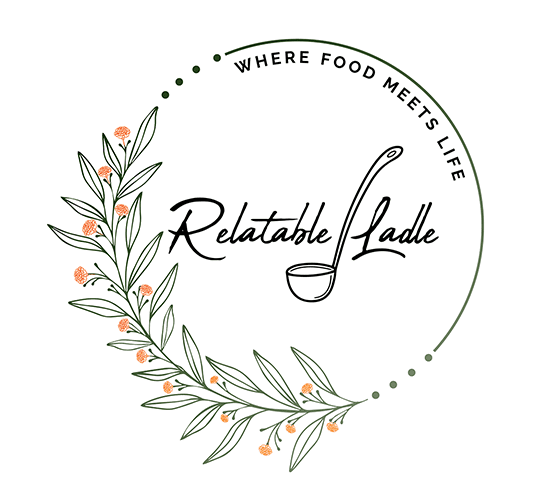Our Situation
If you haven’t read our other posts, here’s a quick recap on why we are even writing about mental health on a blog that also contains allergy-friendly recipes. Adam and I know a great deal about going no contact with parents because we did just that over a year ago. We traveled a long, tumultuous path to arrive at that decision and we want to share how we got here.
This choice was really painful but it was our only option (even our therapist agreed) because after a while we found ourselves asking, “What’s the point?” Our health, marriage, and safety of our kids were at risk. We wanted to share our mental health journey just as much as our outlet in food in the hopes that it may help our readers know that we get it – life is rough at times and we can relate.
What Does Going No Contact Mean?
No contact means eliminating all forms of communication with an individual. It is often used after a breakup with an ex-lover but it can apply to family members and friends as well. It is not easy to execute because it can incite a reaction (positive or negative) from the opposing party.
At first, it may seem welcomed (it must mean they care right?) but unless you or the opposing party treat the underlying issue that caused the separation, nothing has changed. There can also be feelings of guilt or mutual connections that may make it hard to completely disconnect when going no contact. In our situation, for example, our parents were heavily enmeshed with people we knew (more to come on what enmeshment means).
Not only were they enmeshed but after seeking therapy we learned that our parents likely have Cluster B personality disorders, which include narcissistic, borderline, anti-social, and histrionic. All are marked by inappropriate, emotionally volatile, and often unpredictable behavior as mentioned by Psychology Today. Every person will not qualify for a personality disorder if they exhibit one of these behaviors. That’s why it’s important to seek therapy to narrow in on what might be happening with the other party or you. We’ll give you examples though of how this factored into our decision.
8 Reasons Why Going No Contact With Parents May Make Sense

1. Lack of Boundaries or Disrespect of Them
Our boundaries were nonexistent in our parent’s eyes. They wanted every detail and they felt they had a say in our decision-making even in our 30s. You may think that this is normal for parents to desire this but developmentally it’s not appropriate. Our children were THEIR children. They wanted us to live right next to them and when we didn’t, our parents AND enabling family members had something to say about our lack of loyalty.
When we went no contact, our parents arrived at our house unannounced (with lawn chairs no less) to try and force us to talk. A parent may feel they are entitled to do whatever they want and can even convince themselves that they only do everything out of love. They just had to teach us what is right from wrong. At some point, this becomes punitive behavior (Psych Central) and you may want to consider going no contact with parents.
2. Guilt and Shame
The message our whole lives was that no matter which way we turned, we simply did not do enough. I was responsible for my mother wasting away her whole life and was the reason for her unhappiness. He never cared about the family enough and his sibling who suffered from an accident could do more than Adam could. When we had no contact with our parents, we were the punishing ones and were being unfair. After a while, you realize there are plenty of one-sided interactions.
Maybe your interactions with your parents are not as extreme. More subtle situations you might get guilted and shamed for are not going to an event, declaring your loyalty during a family feud, or being supportive enough during a recurrent issue. Other examples are not dropping everything when their shoe drops or basing your decisions on what works best for them.
3. Control, Control, Control
Ever get 12 calls in a row only to be told when you pick up that you didn’t care, even though you spoke to that parent two days ago? How about discussing where you are living in the delivery room over Facetime after just giving birth an hour ago? The diapers you choose weren’t even the ones they would have chosen. Yes, diapers! We experienced all of these situations. Most decisions needed to be made with them in mind and they needed to be able to dictate something.

4. You Don’t Exist But Your Role Does
Ever wonder why they don’t ask how you are doing or invest a solid amount of time in getting to know more about you? Ever feel like the conversations only really go in one direction and it’s usually in favor of them? You are likely dealing with an immature and self-absorbed individual. It can be very invalidating and unsupportive when your thoughts and feelings don’t matter but what you do for them does. You may hear the following messages: “Just do what I want!”; “Deal with it!”; and “You should be so grateful for all that I’ve done for you.”
Adam was told many times by multiple family members to get back in line and keep his mother happy because they didn’t want to deal with the emotional dysregulation that would follow. What should happen is she should manage her feelings. That would be developmentally appropriate for her role as a mother, regardless of age.
5. Passive or Overt Aggressiveness
I once got told that I was too by the book when it came to assembling an arts and crafts snowman. I later was told in a love bombing session what a great designer I was. The messages are always unclear but the underlying vitriol isn’t and it can come in the form of jealousy for your success and happiness, anger for you not doing what they wanted, or just because they need to be able to power trip on someone and that’s you!
We received many threats in the beginning of going no contact with our parents, including confrontation at our workspaces or daily harassment through text (until we blocked them). Force shouldn’t be needed to get someone to communicate with you.
6. Parentification Early On In Life
Ever had to grow up fast to fulfill a role reversal between parent and child? You’re their best friend, their confidante. You took care of their needs instead of them taking care of yours. Later in life, most adults do become appreciative of their parents and form a tighter bond but if this happened in childhood, this would be an inappropriate relationship. A parent is supposed to nurture and fulfill the needs of a child and not burden them with overly complex emotions. Your child should also not be responsible for making you feel worthy or valuable. Adults and parents need to do that for themselves (Parents).
7. Your Loyalty Is Demanded…At Your Expense
Do you ever feel like you have to choose between the family you are making and the one you grew up with? Do you feel disloyal or guilty if you decide to make a decision for yourself? Many times Adam was ridiculed for spending time with me and focusing on our kids instead of focusing on them. You shouldn’t have to choose. As an adult, you must make your own decisions and it is important for every person to individuate and even have a rebellious phase. It’s part of natural development.
8. You Recall Examples of Abuse
I have clear memories of physical and emotional abuse from my family members. Sometimes that alone is enough to envoke the no contact rule because no one’s safety should ever be jeopardized, not even by parents. My mom liked to tell me that I made up these memories in my head and always wanted to accuse her. It’s kind of hard to deny a slap in the face or having objects thrown at you though. Emotional abuse comes in many forms including monitoring and controlling behavior, threatening a person’s safety, constant criticism, making care conditional, and gaslighting (Psychology Today).
Conclusion
Feeling alone can be difficult, especially when going no contact but ask yourself if you’ve experienced guilt, shame, control, demands of loyalty, and a constant disrespect of boundaries. If you have, it may be worth seeking professional advice and considering going no contact with parents. Try to seek out a therapist, who specializes in schema therapy and discuss your experience to see if this is the right choice for you. We all face hardship from time to time with family members but to a degree. Prioritize yourself and know that it’s an act of self-care.
Share Your Thoughts
Have you had similar experiences going no contact with parents? Drop us a comment below! If you need something positive to focus on, check out our recipes!
Disclaimer: All content and information on this website including our recipes and blog articles is for informational and educational purposes only and does not constitute medical, psychological, or health advice (for that please always seek the help of a professional in these areas). We do not warrant that the information presented herein is free of any errors or omissions although we do our best to provide information backed by research.

